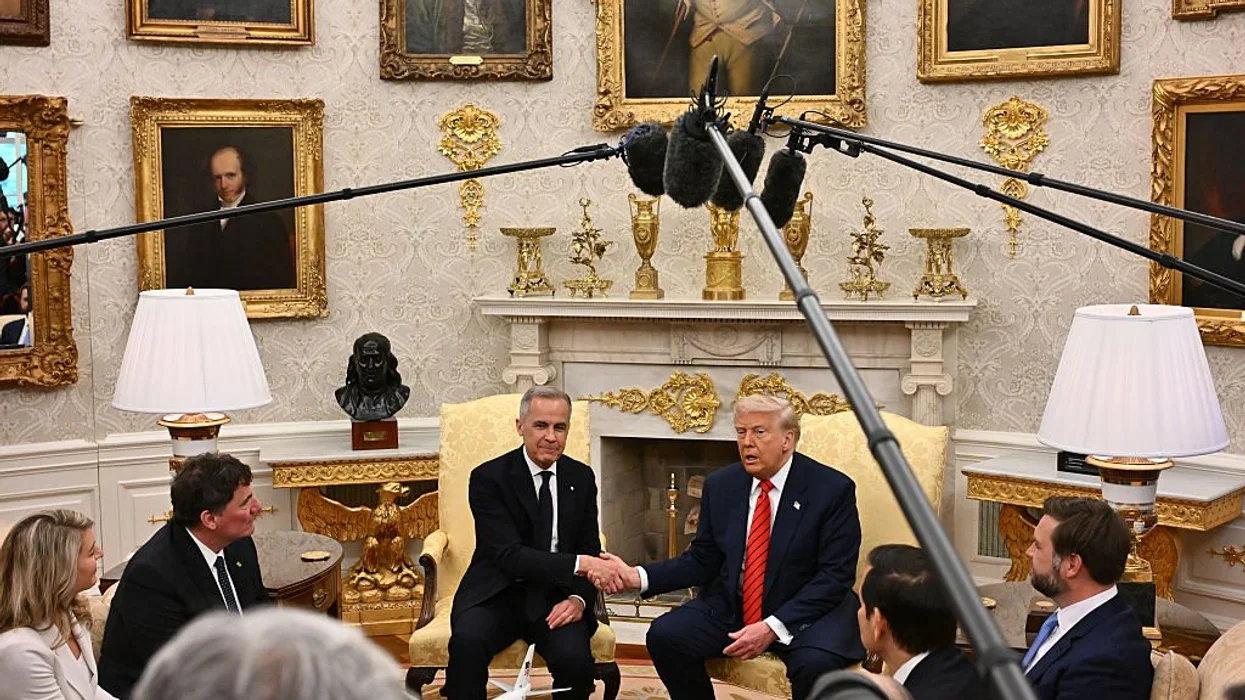The Obama administration has found one way to favor giving more power to the states – and it could involves the wallets of drivers across the country. But Transportation Secretary Anthony Foxx told TheBlaze that the administration's push for allowing states to charge tolls on Interstate highways is “not a free-for-all” proposal.
 Transportation Secretary Anthony Foxx answers a question during the daily briefing at the White House in Washington, Monday, May 12, 2014. Foxx talked about transportation infrastructure in the United States including the federal Highway Trust Fund which is expected run dry by late August. Without congressional action, transportation aid to states will be delayed and workers will be laid off at construction sites nationwide, Foxx said. (AP Photo)
Transportation Secretary Anthony Foxx answers a question during the daily briefing at the White House in Washington, Monday, May 12, 2014. Foxx talked about transportation infrastructure in the United States including the federal Highway Trust Fund which is expected run dry by late August. Without congressional action, transportation aid to states will be delayed and workers will be laid off at construction sites nationwide, Foxx said. (AP Photo)
The toll idea is part of the $302 billion four-year infrastructure plan by the Obama administration. The Grow America Act would also fund various road, highway and bridge projects. States are currrently banned from imposing tolls on federal interstate highways with some exceptions.
The administration is devoting this week to pushing for more spending on infrastructure, as President Barack Obama will speak about it in New York on Wednesday, and Vice President Joe Biden will travel to St. Louis Tuesday to talk about the same legislation. However, the chances of a large scale infrastructure bill clearign Congress in an election year will be a tough hurdle.
On Monday, Foxx talked about the merits of the bill during the White House press briefing when TheBlaze asked about the toll roads provision.
“There has been a lot of interest in the toll issue, but it's actually not how we pay for our bill,” Foxx told TheBlaze. “The way we pay for our bill is the way I said we would pay for it, which is pro-growth business tax reform. We think we have to have a multi-tiered approach going forward to tackle the infrastructure deficit the country faces. So think about it this way. We would put a four-year $302 billion proposal on the table. In addition to that, we would work with not only ourselves at the federal level but with states to try to accelerate permitting process in review so that more value can be captured for the dollar.”
The legislation would add business taxes, close some corporate tax loopholes and would include numerous provisions of one-shot revenue of $150 billion – which would cover about half the cost of the bill.
“The tolling piece, which is a smaller piece of our bill, but what it basically does is it enables a given governor if they decide they want to pursue tolling to apply to the federal government and to have a decision made about whether they are using that toll revenue to improve the facility they're using or to relieve congestion,” Foxx said. “Then, at that point, if its acceptable to the U.S. DOT, they would have more capability to do it. But it is not a free for all, it's not a way we pay for our bill.”
The legislation would also ensure the solvency of the Highway Trust Fund, which is set to runout of funding in August without congressional action, which would mean states could miss out on about $47 billion in federal road project funding.
Addressing another question from TheBlaze, Foxx said that earmarks would not be a problem if the legislation passes.
“The methods and means the projects get done and delivered in most cases is going to be the usual way through the formula we have exiting,” Foxx said. “Our proposal would have some more competitive programs. But those will be merit based competitive programs, not ones that are pork based.
The Grow America Act would eliminte “the prohibition on tolling existing free Interstate highways, subject to the approval of the Secretary, for purposes of reconstruction,” and that states will have more flexibility on “components of their highway systems.”
The bill would also allow states to toll different amounts during the day.
Federal law prohibits tolling interstate highways except for when the money is used to added lanes or increase capacity of traffic on the federal highway. It also allows tolls if the road was tolled before the Interstate highway system began in 1956.
The New Jersey Turnpike and parts of Interstate 95 in Maryland are both toll roads, but it's because they were grandfathered in, Fox News reported.
Chicago's Dan Ryan Expressway to Indiana Tollway is the most expensive toll road in the United States, at 46 cents per mile, according to Fox News. Downtown tolls in Denver, Colorado and Delaware's John F. Kennedy Memorial Highway are each 29 cents per mile.

 Transportation Secretary Anthony Foxx answers a question during the daily briefing at the White House in Washington, Monday, May 12, 2014. Foxx talked about transportation infrastructure in the United States including the federal Highway Trust Fund which is expected run dry by late August. Without congressional action, transportation aid to states will be delayed and workers will be laid off at construction sites nationwide, Foxx said. (AP Photo)
Transportation Secretary Anthony Foxx answers a question during the daily briefing at the White House in Washington, Monday, May 12, 2014. Foxx talked about transportation infrastructure in the United States including the federal Highway Trust Fund which is expected run dry by late August. Without congressional action, transportation aid to states will be delayed and workers will be laid off at construction sites nationwide, Foxx said. (AP Photo)


